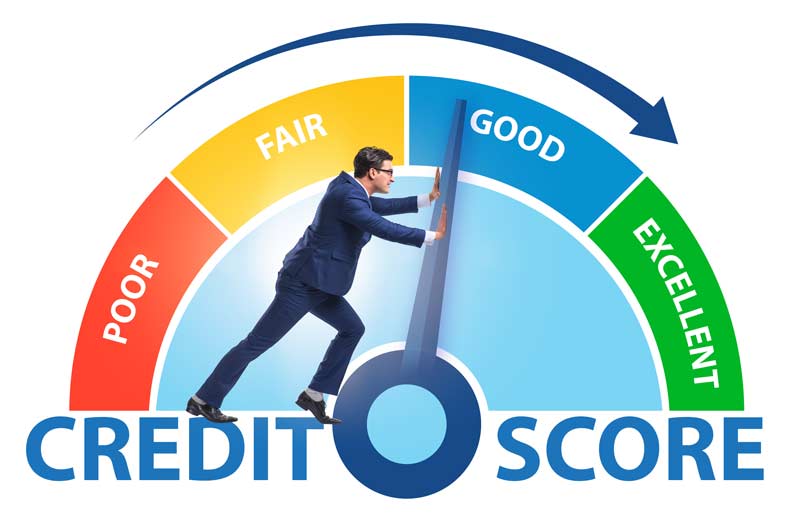Improving your credit score can significantly impact your financial life, helping you secure better interest rates, qualify for loans, and even influence your job prospects. Here are ten simple and effective strategies to boost your credit score.
1. Make On-Time Bill Payments to Improve Your Credit Score
Payment history is the most crucial factor affecting your credit score, accounting for 35% of the total score. Consistently paying your bills on time demonstrates reliability to lenders and can quickly improve your score. Consider setting up automatic payments or reminders to avoid late payments.

2.Maintain Your Credit Usage Low
Credit utilization refers to the percentage of your available credit that you use. It’s recommended to keep this ratio below 30%. For instance, if you have a credit limit of Rs100,000, try not to carry a balance higher than Rs 30,000. Paying down your balances can positively impact your score almost immediately.
3. Check Your Credit Report for Inaccuracies
Your credit score may be unnecessarily lowered by errors on your credit report. Every year, get a free credit report from each of the three main credit agencies (Experian, Equifax, and TransUnion) and carefully review it for errors. If you discover any mistakes, raise a disagreement right away to have them fixed.
4. Prevent Creating An Excessive Number Of Credit Accounts to Improve Your Credit Score
Each time you apply for a new credit account, a hard inquiry is made on your report, which can temporarily lower your score. While new credit is essential for building a credit history, avoid opening multiple accounts within a short period.
5. Increase Your Credit Limit to Improve Your Credit Score
If you’re managing your credit well, asking for a higher credit limit can be beneficial. A higher limit, coupled with low balances, reduces your credit utilization ratio, which can boost your score. However, be cautious not to increase your spending just because your credit limit is higher.
6. Become an Authorized User
Becoming an authorized user on someone else’s credit card account can help you build credit, especially if the primary account holder has a strong credit history. This strategy can be particularly effective for those with a short credit history, as it can instantly lengthen the credit history portion of your credit score calculation.
7. Maintain a Diverse Mix of Credit to Improve Your Credit Score
Credit mix, or the variety of credit types you have (e.g., credit cards, mortgages, installment loans), makes up 10% of your score. Lenders like to see that you can manage different types of credit responsibly. If possible, try to maintain a mix of credit types.
8. Keep Old Credit Accounts Open
The length of your credit history accounts for 15% of your credit score. By keeping older accounts open, you maintain a longer average credit history, which can positively impact your score. However, if a card has high fees, consider the cost before keeping it open.
9. Pay Off Debt Strategically
Focus on paying off high-interest debt first or consider a debt snowball method (paying off the smallest balances first) to reduce your debt load. As you pay down your balances, your credit utilization ratio improves, which can lead to a higher credit score.
10. Get Credit for Recurring Payments
Certain services now allow you to get credit for bills you already pay, like utilities, rent, and streaming services. Programs like Experian Boost and eCredable Lift can add these payments to your credit report, potentially increasing your score.
Conclusion
Improving your credit score takes time, consistency, and strategic action. By focusing on these ten steps, you can build and maintain a strong credit profile, setting yourself up for better financial opportunities in the future.
also read; Antim Panghal Faces Potential Three-Year Ban for Disciplinary Breach
you might like ; Olympics 2024 Medal Count ; A Comprehensive Overview
Disclaimer
This blog provides information and insights based on current knowledge and perspectives. We aim to ensure accuracy, but we cannot guarantee that every detail is complete or error-free. Readers are encouraged to seek additional information from official sources and consult experts when needed. We welcome respectful discussion and value diverse viewpoints. The opinions expressed are those of the author and may not reflect the views of all individuals or organizations mentioned. Thank you for your engagement and for being a valued part of our community.

